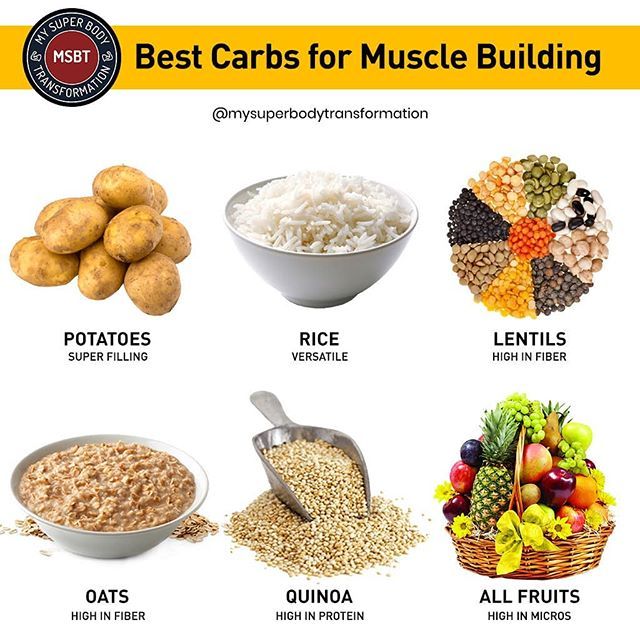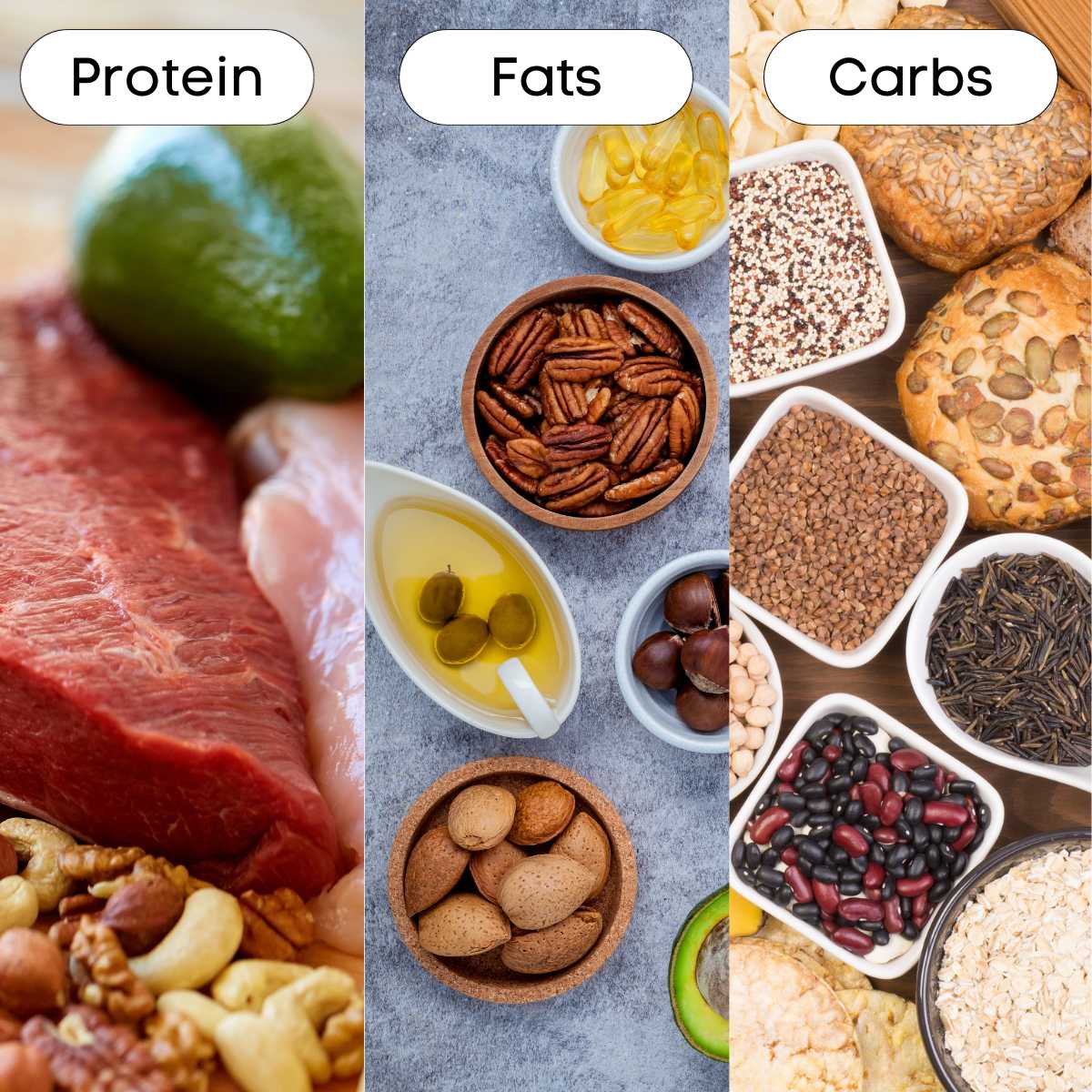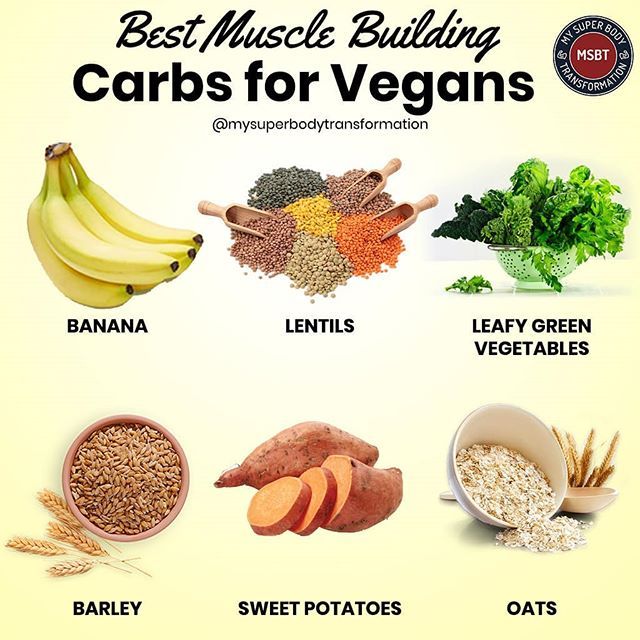Effective Strategies to Optimize Carbohydrates for Muscle Growth in 2025
In the ever-evolving world of fitness and nutrition, optimizing Kohlenhydrate (carbohydrates) for Muskelaufbau (muscle growth) has become increasingly important. As aspiring bodybuilders and fitness enthusiasts strive to maximize their training outcomes, understanding the role of carbohydrates in energy supply and muscle recovery is crucial. This article dives into effective ways to harness carbohydrates to fuel your workouts and promote muscle development.
Carbohydrates are essential macronutrients that provide the energy needed for intense strength and endurance training. They replenish Glykogen stores, helping maintain optimal performance during exercise. Apart from their energy-providing abilities, the right carbohydrates can also enhance Muskelmasse (muscle mass) by influencing factors such as Blutzuckerspiegel and metabolic response post-workout.
As we explore the best practices in Fitnessernährung (fitness nutrition), we will outline the importance of macronutrient balance, timing of carbohydrate intake, and various food sources to help you meet your energy needs. You will also discover expert recommendations for practical meal planning and strategies to optimize your carbohydrate management effectively.
Let’s dive deeper into the topic and uncover the secrets to maximizing your carbohydrate intake for muscle growth success!
Essential Guide to Carbohydrate Types for Muscle Growth
Understanding the distinction between different types of carbohydrates can help you make informed dietary choices tailored to your fitness goals. This knowledge is a building block for effective Ernährung nach dem Training (post-workout nutrition) and sustainable muscle development.
Long-Chain vs Short-Chain Carbohydrates
Carbohydrates can be categorized based on their structure into long-chain and short-chain types. Long-chain carbohydrates, such as whole grains, provide a steady release of energy, making them ideal for sustained workouts and daily energy needs. In contrast, short-chain carbohydrates, like sugary snacks and drinks, offer quick fuel but may lead to rapid spikes in Blutzuckerspiegel.
For muscle growth, it’s crucial to emphasize long-chain carbohydrates in your meals to keep energy levels stable, especially during intense training sessions. Examples include brown rice, oats, and sweet potatoes, which should be prioritized in Essensplanung (meal planning) for optimal nutrient timing.
Glycemic Index and Its Importance
The Glykämischer Index (GI) measures how quickly carbohydrates affect blood sugar levels. Foods with a high GI lead to rapid spikes in glucose and insulin, while low GI foods release energy more slowly, promoting sustained performance. For muscle building, a combination of both high and low GI foods can be beneficial—low GI foods before workouts help maintain energy levels, while high GI foods after exercise can replenish glycogen stores quickly.
Integrating a diverse range of carbohydrate sources can enhance your overall nutrient intake, supporting not only Muskelreparatur (muscle repair) but also overall recovery after workouts.
Carbohydrate Sources for Optimal Energy Supply
Identifying the best Kohlenhydratquellen (carbohydrate sources) is essential for optimizing your muscle-building diet. Incorporating a variety of sources ensures you meet your Energiebedarf (energy needs) effectively.
Excellent carbohydrate sources include:
- Whole grains: Brown rice, quinoa, oats.
- Fruits: Bananas, berries, apples.
- Vegetables: Sweet potatoes, corn, peas.
- Legumes: Beans, lentils, chickpeas.
Experimenting with different carbohydrate sources can also help in assessing how your body reacts to various types, thus optimizing your Kohlenhydrate management.
How to Plan Your Carbohydrate Intake for Training
Once you’re familiar with the types of carbohydrates and their roles, creating a strategic plan for your carbohydrate intake becomes vital for enhancing your muscle-building efforts. Proper meal timing and allocation of carbs throughout the day can significantly impact your training performance and recovery.
Pre-Workout Carbohydrate Strategy
Implementing a pre-workout carbohydrate strategy can enhance your training intensity. Aim to consume a meal rich in carbohydrates about 1-2 hours before your workout. This could include a serving of oatmeal topped with sliced banana or a smoothie with fruits and protein powder.
The right balance will help minimize fatigue and maximize your overall training performance, benefiting your Trainingsintensität (training intensity).
Post-Workout Recovery Nutrition
Post-workout nutrition should focus on replenishing glycogen stores and promoting muscle recovery. Consuming a combination of carbohydrates and protein shortly after your workout optimizes recovery. Options such as a protein shake with oats or a chicken and quinoa bowl can be effective.
Pay attention to your Erholungszeit (recovery time) by ensuring your post-workout meal is within the critical 30-minute window for nutrient absorption, maximizing Muskelreparatur (muscle repair) and growth.
Balancing Carbohydrates Throughout the Day
Consistency is key when optimizing carbohydrates for muscle building. Incorporating appropriate carb sources in each meal ensures a steady supply of energy throughout the day. Keep a food diary or use Fitness-Apps to track your macronutrient intake. This approach not only helps you meet your carbohydrate goals but also reinforces healthy eating habits.
Expert Tips for Carbohydrate Management in Fitness Plans
To further enhance your approach to carbohydrates in your fitness journey, consider implementing expert advice that will assist in achieving your Fitnessziele (fitness goals).
Utilizing Carbohydrate Load Days
Incorporating Kohlenhydratladetage (carbohydrate loading days) effectively can boost glycogen stores, preparing you for higher training volumes. This strategy typically involves cycling between low and high carbohydrate days leading up to an event or intense workout phase.
Understanding how your body reacts to this method can enhance exercise performance and increase muscle growth.
Monitoring Nutrient Timing and Quality
Keeping track of when you consume your carbohydrates in relation to your workouts is critical. Prioritize whole food sources over processed options for better nutrient density. Consider foods that provide essential vitamins and minerals alongside carbohydrates, contributing to overall health and Stoffwechselrate (metabolic rate).
Including Supplements for Enhanced Performance
Certain supplements, such as Proteinshakes and Sportgetränke (sports drinks), can effectively support carbohydrate management. These can ensure you are meeting your macro needs, especially during intense training sessions.
Before diving into supplements, consulting a Fitness-Coach or nutritionist can provide tailored advice based on your individual performance requirements and goals.
Common Mistakes to Avoid in Carbohydrate Intake
Even with the best strategies, making mistakes in carbohydrate management can hinder your muscle growth and overall performance. Recognizing these pitfalls is essential for ongoing success.
Overconsumption of Simple Carbohydrates
A common mistake is relying too heavily on simple carbohydrates for quick energy. While they can provide a boost, excessive consumption may lead to fluctuations in blood sugar levels, energy crashes, and ultimately hinder long-term muscle building.
Neglecting Overall Macronutrient Balance
Focusing excessively on carbohydrates at the expense of protein and fat can skew your nutrient intake, limiting your muscle growth potential. Strive for a balance that suits your training demands and personal health goals.
Lack of Consistency in Meal Planning
Adopting a sporadic approach to meal planning can lead to inconsistent nutrient intake and energy levels. Consistent meal preparation can help you stay on track with your carbohydrate management and align with your training schedule.
Q&A Section: Your Carbohydrate Questions Answered
How many carbohydrates do I need for muscle growth?
The exact amount of carbohydrates required varies by individual factors such as weight, training intensity, and goals. A general guideline is to consume 3-7 grams of carbohydrates per kilogram of body weight, adjusting as needed based on your training demands.
Can I still build muscle on a low carbohydrate diet?
While low carbohydrate diets such as the Ketogene Diät can be suitable for some, they may not be optimal for muscle building due to limited energy availability. Consider a balanced approach with focused carbohydrate intake around workouts for optimal results.
What are the best carbohydrate sources for post-workout recovery?
Choosing nutrient-dense carbohydrates such as bananas, sweet potatoes, or recovery shakes that combine protein and carbs will enhance recovery processes. Aim for whole, minimally processed foods to maximize nutrient intake.

Conclusion: Mastering Carbohydrates for Optimal Muscle Growth
Successfully optimizing your carbohydrate intake is a multifaceted approach that encompasses understanding carbohydrate types, strategic meal planning, and avoiding common pitfalls. By focusing on proper nutrient timing and quality, you can enhance your Leistungssteigerung (performance enhancement) and muscle growth journey.
Ultimately, remember that every individual’s needs may differ; listening to your body and adjusting accordingly will lead to the best results. Consistently applying these strategies will lead you closer to achieving your fitness objectives in 2025 and beyond.

For more insights on fitness and nutrition, feel free to explore these resources: Understanding Macronutrients and Effective Meal Planning Strategies.
